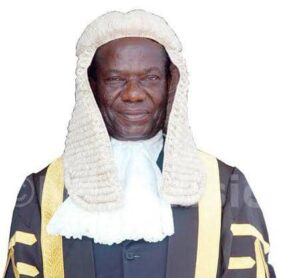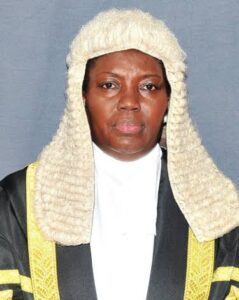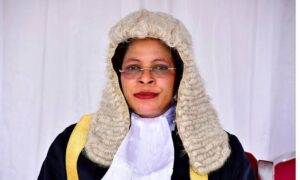By Sekaggya Seka Moses
Last week, Ms Anita Among’s name was etched into the history books of Uganda’s parliamentary democracy as yet another Speaker of Parliament under whose tenure security forces stormed Parliament ahead of what was meant to be a crucial debate.
Parliament was plunged into darkness as plain-clothed security personnel grabbed sections of Opposition legislators who had been virulently opposed to the passing of the National Coffee Amendment Bill, 2024.
This is the second time under the rule of the National Resistance Movement (NRM) that what should be a temple of democracy and free speech has been turned into a colosseum where legislators turned gladiators and our security forces hunt down those that are considered threats to the agenda of those in power.
Some critics say violence now seems to be the preferred tool for influencing debate and outcomes of contestations, going against what they say are among the pillars of the NRM 10-Point Programme.
The 10-Point Programme was crafted during the Bush War for purposes of not only justifying Mr Museveni’s decision to take up arms against the elected government of Milton Obote and the Uganda National Liberation Army (UNLA) but also to provide a blueprint along which the country would be governed in the interim.
So why do critics think Uganda is witnessing wanton abuse of power by individuals in the NRM?
Problems are partially responsible for the democratic malaise in which Uganda finds itself, he says individual occupants of the Office of Speaker of Parliament have by their actions exacerbated the problem.
He argues that with the exception of James Wapakhabulo and Francis Ayume, all other Speakers have been consumed by an unexplainable desire to please the Executive.
Every Speaker, he says, seems to want to outdo their predecessor to please Mr Museveni.
Prof Morris Ogenga Latigo, who was the Leader of the Opposition in the 8th Parliament, accused former Speaker Edward Kiwanuka Ssekandi in a previous interview of having turned Parliament into a rubber stamp institution.
“As the Speaker, he ensured that whatever the President wanted he got, only that he (Mr Ssekandi) has a demeanour of calmness and innocence that used to make people believe that he was not responding to pressure from elsewhere,” Prof Latigo says.

Mr Ssekandi was accused of having declared on so many occasions that “the ayes have it” even when Parliament had been silent, a charge he denied.
“I just announce what the House has decided. Unless I misinterpret the law or the rules of procedure, that’s when you can say the Speaker has not done his job well… Otherwise, my work is to simply put the question and the honourable members decide,” Mr Ssekandi once told journalists.
Ssekandi’s rulings
Mr Ssekandi’s tenure had some controversial rulings, including the tabling and passing of the first constitutional amendment Bill within a record two hours.
The Constitutional Court later ruled that the Bill had been passed in total disregard of the Constitution having been tabled, debated, passed and assented to by the President on the same day, contrary to the mandatory minimum period of 14 working days between readings.
In May 2005, Mr Ssekandi controversially allowed the army to kick Maj Gen Henry Tumukunde out of Parliament even when the soldier had written to him indicating that he was being coerced to resign for opposing the lifting of presidential term limits.
“I read the letter and it said exactly that (resignation). In that letter, there was nothing like ‘I am under duress’… Let this be clear. Nobody directed me,” Mr Ssekandi told Parliament on June 24, 2005.
The Supreme Court ruled in October 2008 that Tumukunde had not resigned and chided the Speaker for “hastily” accepting the resignation doing little to protect MP’s liberties.
Even when there were fears of victimisation and reprisals, Mr Ssekandi allowed open voting as opposed to the secret ballot ahead of the July 12, 2005, vote that led to the scrapping of presidential term limits.
In July 2007, he ruled that party chief whips could transfer members from committees before the expiry of the committee’s life spans.
Mr Henry Banyenzaki, the Rubanda West MP, as a result, lost his post as vice chairperson of the Budget Committee of Parliament.
In October 2008, he closed the door to tabling of classified or confidential documents before Parliament when he ruled that only documents that had been certified by the author could be tabled.
During the probe on the National Social Security Fund (NSSF) Temangalo land, Mr Ssekandi directed the Clerk to Parliament to hand over a copy of the committee’s main report to dissenting members of the committee to help them write their own.
In April 2011, Mr Ssekandi allowed Parliament to continue with the debate that led to the exoneration of government officials implicated in the abuse of about Shs500b meant for the Commonwealth Heads of Government Meeting (Chogm), Kampala, 2007.
Enter Ms Kadaga
Dr Nabwiso thinks that though Ms Rebecca Kadaga may not have made as many controversial rulings as her predecessor, she outdid him.
“Kadaga took it (dancing to the tune of the Executive) to another level. Her duty was to make sure that her party and whatever the President wished would be granted,” Dr Nabwiso says.
He claims whereas she started with a lot of promise, she ended up worse than previous Speakers, including Mr Francis Butagira, who was the Speaker of Parliament under Milton Obote II, who he says did not speak out in defence of MPs and the House even when Opposition MPs were either killed or locked up in Luzira prison.

“She was thought to be a new thing in the gender movement. She was the first female Speaker of Parliament in East Africa who in 2013 became chairperson of women parliamentary association in the Commonwealth.
She looked aggressive enough and promised that she would do a better job.Initially started well in the 9th Parliament, but ended up being the worst.
This was the first person who allowed security agents to enter Parliament and beat up MPs who were opposed to the motion (to lift presidential age limits),” Dr Nabwiso says.
But to steer herself clear of the 2017 invasion of Parliament, Ms Kadaga penned a letter to President Museveni in which she sought to find out who had carried out the invasion that left MPs Betty Nambooze and Francis Zaake nursing spine and head injuries respectively.
“I have had the opportunity to view camera footage of what transpired and noticed people in black suits and white shirts who are not part of the parliamentary police or the staff of the sergeant at arms beating members. Additionally, the footage shows people walking in single file from the office of the president to Parliament precincts,” Ms Kadaga wrote in the October 23, 2017, letter.
She added, “I am, therefore, seeking an explanation as to the identity, mission and purpose of the unsolicited forces. I am also seeking an explanation about why they assaulted the MPs.”
Enter Among
Dr Nabwiso made his take before the events of the morning of November 6 when Parliament was stormed by people who Opposition MPs called “goons,” under Ms Among’s eyes.

But Mr Chris Obore, the Parliament director of communication and public affairs, maintains that the people who seized the legislators were police officers attached to Parliament.
“They are police officers attached to Parliament and are not military personnel,” Mr Obore said in an interview with Daily Monitor last week. “Parliament has a fully-fledged Police Division.
I am not sure they (MPs) know all the police officers attached to Parliament. The Sergeant-at-Arms asked the police to reinforce them. Everything was handled by the police within Parliament,” he said.
Now if both Ms Kadaga and Ms Among are adjudged to have allowed the invasions of Parliament to happen, we should remember that the first attack occurred during the seventh year of Ms Kadaga’s tenure as Speaker.
Ms Among is in the third year of her first term as Speaker.
The fate of Among’s legacy as Speaker hangs in the balance, awaiting the decisive verdict of history.
Have An Advert Or Article You Want Us To Publish? Whatsapp: +256786288379 or email binocularugnews@gmail.com
